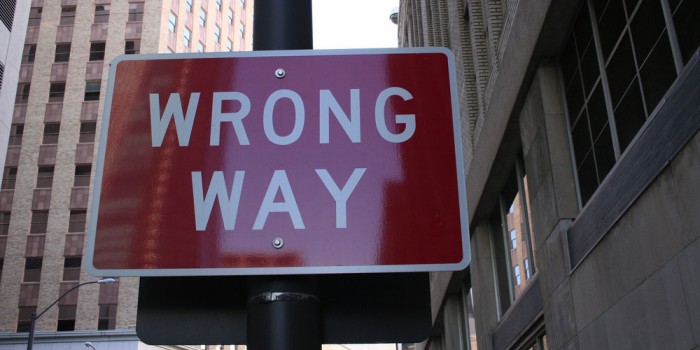Learning from Bus Buddhists
In psychological terms, context is almost everything. Much as we like to think that we know how we will act and react in a given situation, without the richness of...
Why Your Market Research Will be Wrong

Has market research ever been wrong?
Of course it has. Pretty much everyone I know who has any experience of using market research has had some experience where it didn’t turn out to be right.
Marketing history is littered with famous and infamous examples from big companies like McDonald’s, Mattel, Coca-Cola, Chrysler…
But often the questions that research asks can’t ever be accurately defined any other way. In the absence of another number to use, people believe that the number coming back from the research is an accurate read on what customers think.
However, there is lots of evidence to show that people really shouldn’t be so willing to believe what market research reports back.
One such study arrived on my desk this week at just about exactly the same time that what it said was demonstrated in reality.
A friend from my university days got in touch through LinkedIn (a business networking site). It was great to get her email but I have a bad memory for names so my initial correspondence was conducted without me having an absolutely clear recollection of who she was.
Fortunately, I hinted at my bad memory, and my friend reminded me who her other close friends on the course were.
Of course, given that I have such a bad memory for names, you might think that her throwing a couple of other names wouldn’t help much.
But it did.
It helped because that gave me a broader mental context in which to place her. Rather than relying on just her name and my university course, I now had extra information that my memory could link together.
A study carried out by researchers at the University of Toronto looked at how people recall information. People were given pairs of words that were not related (like alligator and chair) and invited to learn them by putting them in a sentence together.
Then, whilst having their brain scanned using fMRI, they were shown a list of individual words and asked to identify which they had seen earlier and say how confident they were about their answers.
When people were given the cue word that they’d been shown earlier the pairing triggered detailed memories of the context they’d set those words in (i.e. the sentence they’d created).
The brain scanning revealed that only when a context cue word was used to retrieve the memory a different area of the brain (the hippocampus) was active too.
When market researchers stop people in the street, or email a questionnaire to their computer, and ask customers about what products they are aware of, or how they feel about those products, there is no contextual information; certainly none of the context that would normally be present in a retail setting.
As a result, information that customers would access when they are shopping isn’t present when they’re answering questions.
That’s a recipe for inaccurate research.
Source: University of Toronto. “Don’t I Know You? How Cues and Context Kick-Start Memory Recall.” ScienceDaily 12 December 2009. 15 January 2010 /releases/2009/12/091207151333.htm>.
Image courtesy: MyEyeSees